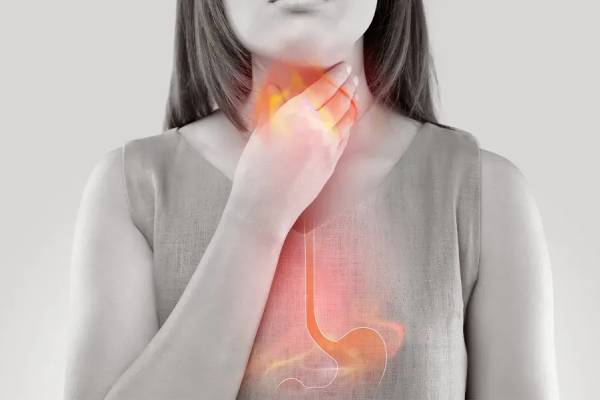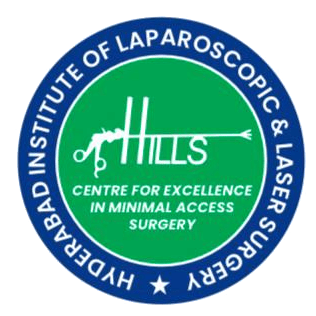Difficulties in swallowing food or water? Then it may be that you’re suffering from Achalasia, which is a rare esophageal motility complaint represented by the incapability of the lower esophageal sphincter. Dr. N. S. Babu is the best achalasia-cardia surgeon in Hyderabad with his 15+ experience in performing 10,000+ surgeries with advanced laparoscopic surgeries and minimal access surgery, he’s observed as the best surgical gastroenterologist in Hyderabad.
Dr. N. S. Babu completed his MBBS in 2008 from Gandhi Medical College, followed by MS from Kakatiya Medical College and MGM Hospital, Warangal, and a DNB from GEM Hospital & Surgical Centre, Coimbatore. Presently Dr. N. S. Babu is working as a Consultant Surgical Gastroenterologist and Advanced Laparoscopic Surgeon at EVOKE Clinics, Secunderabad, and Apollo Hospital, Hyderabad where he gives the best achalasia cardia treatment in Hyderabad.
Here he explains everything about Achalasia cardia, so let’s explore,

What is achalasia-cardia?
Achalasia cardia, as often as possible connected with achalasia, is an interesting objection that influences the throat, the line that conveys food from the mouth to the stomach. In achalasia, the muscles of the throat and the lower esophageal sphincter( LES) don’t unwind fittingly, prompting trouble in gulping food and fluids.
According to best colorectal surgeon in Hyderabad, Dr. N. S. Babu, the specific reason for achalasia is not known, yet it’s trusted to be due to of harm to the nerves in the throat. Side effects of achalasia can convey trouble gulping, disgorging of food, chest torment, weight reduction, and indigestion.
Who can get achalasia-cardia?
Achalasia cardia can occur in people of any age, including children, but it’s most generally diagnosed in grown-ups between the ages of 25 and 60. Both men and women are inversely affected by achalasia. While the exact cause of achalasia is unknown, certain factors may increase the threat of developing the condition, as suggested by Dr. N. S. Babu the threat factors include:
- Autoimmune conditions: There may be an association between achalasia and autoimmune diseases like type 1 diabetes or thyroid diseases.
- Genetics: There may be an inheritable predilection to achalasia, as it can occasionally run in families.
- Infections: Some infections, analogous to those caused by certain viruses, have been indicated as implicit triggers for achalasia, but this is not yet well-established.
- Nerve damage: Damage to the nerves in the esophagus may contribute to the evolution of achalasia, but the cause of this nerve damage is not continually clear.
- Other factors: Some inquiries have alluded that certain environmental procurators or exposures may boost the trouble of achalasia, but further disquisition is needed to confirm these cooperations.
Overall, achalasia is a rare disorder, and while certain factors may increase the risk, it can occur in anyone.
What are the symptoms of achalasia-cardia?
The main symptoms of achalasia cardia include
- Difficulty swallowing( dysphagia), especially with solid foods.
- Regurgitation of food or liquids.
- Chest pain or discomfort, constantly behind the breastbone.
- Weight loss, frequently due to difficulty eating.
- Heartburn or acid influx.
Dr. N. S. Babu says that these symptoms can vary in inflexibility and may worsen over time if left undressed.
How to diagnose Achalasia-Cardia?
As per the best Laparoscopic surgeon in Hyderabad Dr. N. S. Babu diagnosing achalasia cardia generally involves a combination of medical history assessment, physical examination, and individual tests. Here is a figure of the common individual techniques used
- Medical History and Physical Examination: The doctor will start by asking about your symptoms, such as difficulty swallowing, regurgitation of food, chest pain, and weight loss. They will also guide a physical examination to check for any signals of complications or footing conditions.
- Barium Swallow Study( Esophagogram): This is a primary imaging test exercised to diagnose achalasia. During this test, you will swallow a liquid containing barium, which fleeces the within of your esophagus. X-rays are also taken while you swallow, allowing the doctor to observe the movement of the barium through your esophagus. In achalasia, the classic finding is a ballooned esophagus with a narrowed lower esophageal sphincter( LES) and a” bird’s beak” appearance.
- Esophageal Manometry: This is the most accurate test for diagnosing achalasia. It measures the pressure and collaboration of muscle condensation in the esophagus. During the procedure, a slim, adjustable pipe with sensors is passed through your nose or mouth and into your esophagus. The sensors discover the pressure applied by the muscles of the esophagus as you swallow. In achalasia, there’s generally reduced or absent peristalsis( muscle condensation) in the esophagus and increased resting pressure of the LES.
- CT Scan or MRI: These imaging tests may be used to estimate the esophagus and girding structures, particularly if there are concerns about complications or if other tests are inconclusive.
Treatment of Achalasia:
Achalasia is a disorder that affects the ability of the esophagus to move food toward the stomach. The main treatment options for achalasia include:
- Balloon Dilation (Pneumatic Dilatation): In this system, an inflatable is embedded into the throat and expanded to extend the tight LES muscles, permitting food and fluids to pass all the more without any problem. It can give transitory alleviation of side effects yet may be rehashed over the long run.
- Botulinum Toxin (Botox) Injection: Botulinum poison can be infused straightforwardly into the LES muscles to briefly incapacitate them, considering simpler gulping. This treatment is commonly held for patients who are bad contenders for different methods or who have bombed different medicines.
- Surgical Myotomy: In a careful myotomy, the muscles of the LES are sliced to diminish their snugness and improve gulping. This should be possible by means of open medical procedure or laparoscopically (negligibly intrusive). It is viewed as the best long-haul treatment for achalasia however conveys gambles related to a medical procedure.
It’s important for patients to discuss their symptoms and preferences with best achalasia- cardia surgeon in Hyderabad, Dr. N Subrahmaneswara Babu to determine the most appropriate treatment plan for their individual needs.
Why Choose Dr. N. S. Babu for Achalasia-Cardia Treatment in Hyderabad?
- Vast Experience: Dr. N.S. Babu is highly educated in the field of Surgical Gastroenterology and general and laparoscopic Surgery, including the treatment of Achalasia- Cardia. He has successfully performed over 10,000 surgeries including piles, fistula ,gallstone surgery , rectal prolapse and fissure treatment, demonstrating his expertise and skill.
- Educational Achievements: Dr. N. S. Babu has a strong educational background, including a Master of Surgery, FMAS( Fellowship in Minimal Access Surgery), and DNB Surgical Gastroenterology. His commitment to staying modernized with the latest medical advancements is apparent through his fellowships in HPB Surgery, featuring his dedication to delivering the best possible care.
- Affiliation with Renowned Institutions: Dr. N. S. Babu is presently associated with EVOKE Clinics, Secunderabad, and Apollo Hospitals Hospital, Hyderabad, two recognized medical institutions known for their high-quality healthcare services. This cooperation ensures that patients receive top-notch treatment and care.
- Membership in Professional Associations: Dr. N. S. Babu is a full-time member of the Association of Surgeons of India( ASI) and the Association of Minimal Access Surgeons of India( AMASI). His active involvement in these professional communities demonstrates his commitment to advancing surgical practices and staying streamlined with the latest developments in the field.
Consult With the Best Colorectal Surgeon in Hyderabad:
Are you in search of the best achalasia- cardia treatment in Hyderabad? Look no further – Dr. N. Subrahmaneswara Babu is one of the best achalasia- cardia surgeon in Hyderabad . For any information and appointment call us on 094908 08080 or simply fill out the form Book your appointment
Frequently Asked Questions (FAQ's):
What is the best treatment for achalasia cardia?
The best treatment for Achalasia-Cardia depends on symptom severity and patient preferences. Options include pneumatic dilation, Heller myotomy, and botulinum toxin injection, each with its own benefits and risks.
What is the success rate of achalasia cardia?
Treatment success rates for Achalasia-Cardia vary based on the method used. Pneumatic dilation and Heller myotomy generally have 80-90% success rates in symptom relief and improving esophageal function.
Is achalasia surgery safe?
Yes, achalasia surgery, such as Heller myotomy, is generally considered safe and effective for treating achalasia. However, as with any surgery, there are risks involved, including bleeding, infection, and adverse reactions to anesthesia.
How I cured my achalasia?
Achalasia is a chronic condition with no known cure, but it can be effectively managed to reduce symptoms. Treatment options include pneumatic dilation, Heller myotomy surgery, and Botox injections to relax the lower esophageal sphincter.
Can achalasia be treated without surgery?
Yes, achalasia can be treated without surgery using non-surgical methods such as pneumatic dilation, botulinum toxin injection, or medication to relax the lower esophageal sphincter.
